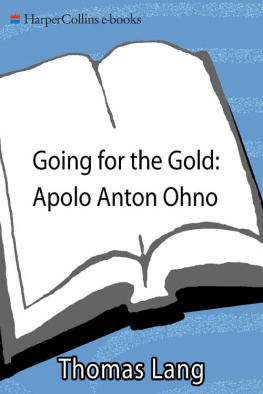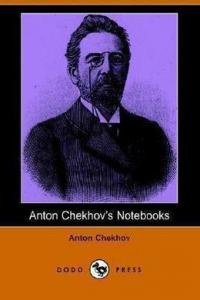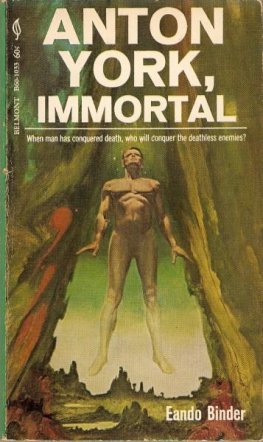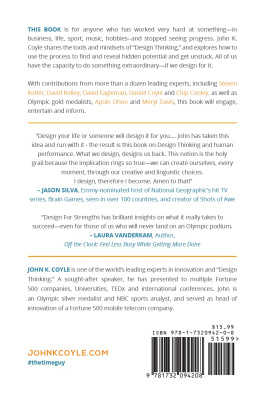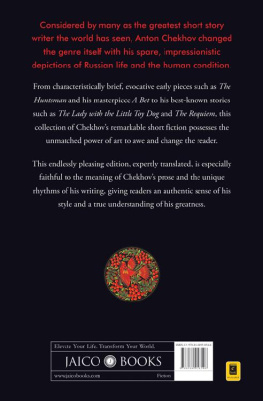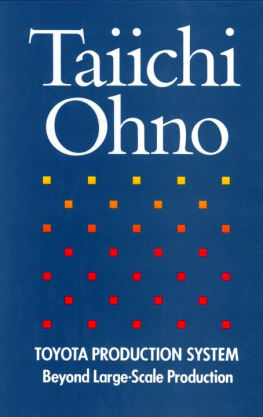Going for the
GOLD
APOLO ANTON OHNO
Skating on the edge
Thomas Lang

To all future Olympic hopefuls
Contents
I NTRODUCTION:
Mission Apolo
Salt Lake City, Utah. Closing ceremonies. The 2002 Olympic Games.
The greatest two weeks of Apolo Anton Ohnos life were coming to an end.
When he first arrived, people had high hopes for this nineteen-year-old, bandana-wearing, short track speed skater. He was the best in the world. Everyone across the United States was expecting medals. They were even calling these Olympics Apolos Games.
Apolo didnt disappoint.
Apolo treated the world to some of the most exciting competition in Olympic history. And he grabbed a gold and a silver medal while doing it. But it hadnt been easy. Short track speed skating is fast-paced, physical racing. Skaters cruise at thirty-five miles per hour only inches away from each other. People expected dramatic races with hair-raising finishes, and thats exactly what Apolo gave them. With all the crashes, disqualifications, and injuries, every race was a nail-biter. Every race took all Apolo had just to compete. Now it was coming to a close.
Apolo thought about what he had accomplished. He replayed the races in his mind as the closing ceremonies continued. He thought about the crashes, his injuries, the disqualifications. It had all been so crazy, so confusing. He could barely get his mind around what had happened there in Salt Lake. He was surrounded by nearly 2,500 athletes and 50,000 spectators. Millions more were watching on TV. Musicians like Christina Aguilera, Kiss, and *NSYNC jammed in the background. An endless stream of fireworks exploded overhead. People were dancing and cheering. Everyone was celebrating. It was an awesome sight. Still, for Apolo, nothing that night matched the excitement and frenzy of his competitions.
The races of the past two weeks were no different than his entire career had been. The whole six years of training that had led up to this point had been a wild ride. He had hung out with gangs, washed out of training programs, struggled with his father, been abandoned by his mother. Apolo had an incredible storyso incredible that when the Olympics started, people were already talking about it. And by the closing ceremoniesafter Apolo had demonstrated that he was one of the best athletes in the worldhis story was being told around the world.
What is Apolos tale? Turn the page.
C HAPTER
O NE:
From In-Lines to Ice Skates
So whats the childhood of an Olympic speed skater like? Well, its probably a little different for everyone. Usually skaters grow up surrounded by their sport. Think of American speed skaters and you think of places like Wisconsin, North Dakota, and Minnesotaplaces where lakes and rivers can freeze for six months out of the year.
One of the last places youd think a champion speed skater would grow up would be Seattle. Its rainy, not too cold, and right by the ocean. Theres not much snow and hardly ever any ice. Seattle just isnt a place where people spend a lot of time skating. All the same, this mild, wet city by the sea is the hometown of the most famous speed skater in the U.S.: a nineteen-year-old kid with an earring and long hair, named Apolo Ohno.
How did Seattle become home to the 2002 Olympics most exciting speed skater?
Apolo Anton Ohno was born in Seattle on May 22, 1982. Back then no one was counting on an Olympic future for this kid. Things were pretty tough on him right off the bat. His mother, Jerrie Lee, abandoned him in 1983 before he was even one year old. After she took off, he never heard from her again.
Apolos father, Yuki Ohno, was left to raise Apolo as a single dad. It wasnt easy, but he managed as well as he could. Mr. Ohno was a hairstylist in Seattle and worked like crazy to keep up with the bills. He owned his own hair salon called Yukis Diffusions, which took up a lot of his time. And he sometimes took on extra jobs at other salons just to make ends meet. He often worked twelve-hour days. Juggling his time before his son was born had been hard enough. After Apolo arrived and his wife left, things got even crazier.
It was a turning point in my life, Mr. Ohno says, describing the early years, after his wife left. I was the type of hairdresser that goes to parties and all those shows wearing very flamboyant European label suits from head to toe. Everything changed. At the beginning I felt I had no confidence. I thought, Im the only male caring for a one-year-old baby, facing all the other mothers and day care. I was very depressed. But you just develop. You build up confidence.
Another thing that made things difficult was Apolos personality. No one had any idea that Apolo would be skating in the Olympics. But as soon as he could walk, Apolo definitely demonstrated that he had the soul of an athlete and a competitor. He would jump the fence at day care, climb to the top of the jungle gym and refuse to come down, and even swallow dirt and rocks on dares. Basically, he had a rambunctious and uncontrollable kind of energythe kind of energy that makes Olympic champions but that also makes for hard-to-manage kids. Chasing after Apolo was a full-time job, and it was almost impossible for Mr. Ohno just to make dinner or take Apolo shopping at the grocery store. It was exhausting and often sent Mr. Ohno into fits of panic and worry.
But even when Apolo was young, his wild spirit was no mystery to Mr. Ohno. He knew exactly where it came from. Hed been something of a rebel himself.
Mr. Ohno was born in Japan and was the son of a vice-president of a Japanese university. At eighteen, Mr. Ohno decided to leave his academic family and his unexciting life in Japan to try his luck in the U.S. He moved to Seattle, where he enrolled at Seattle City College. He wanted to be an accountant. But after a few courses in accounting, he decided that wasnt for him eithertoo many numbers, not enough socializing. Instead, he decided to check out another career.
Mr. Ohno studied hairstyling and traveled all over the world to learn his craft. He went to London to study at the famous Vidal Sassoon salon and spent time in New York City practicing his trade. He partied with artists, hung around with players in the fashion industry, and cut the hair of famous models. Not a bad life. It was actually kind of a wild life. It made sense that his son was a little wild, too.
Eventually Mr. Ohno made his way back to Seattle. There he opened his salon, Yukis Diffusions. It was 1980 and he was putting down some roots. But while the traveling was slowing down, the fun was not.
Mr. Ohno continued to live a wild life, staying out late, partying with his friends, and occasionally flying off to London to cut a models hair. Then he met Apolos mother, Jerrie, and Mr. Ohnos life looked like it was finally going to settle down.
Unfortunately, a peaceful family life was not in the cards. Apolo was born and Jerrie left. Mr. Ohno had gone from rebellious partier to family man to single dad, all in a few short years. Things definitely changed, but probably not the way Mr. Ohno had imagined they would.
But he didnt shy away from his responsibilities. He was thirty-seven, a hard worker, and he did everything he could for his son. He describes himself as half mom and half dad. Every Mothers Day Mr. Ohno would ask Apolos teacher to convince Apolo to make him a card.
I didnt want him to feel left out, Mr. Ohno says.
Next page
